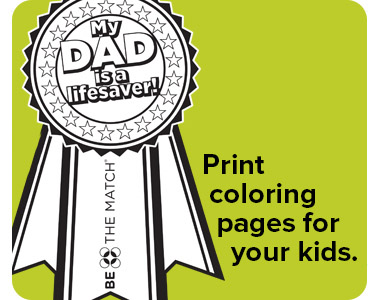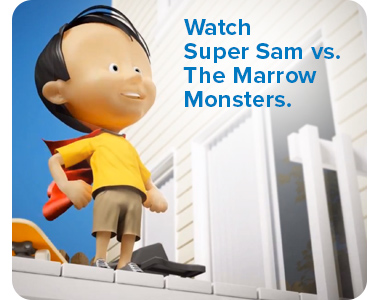The questions below are some of the most commonly asked questions from children of potential donors like you. Click on each question to display the suggested responses and use the information to prepare yourself for your conversation.
You can also print this toolkit (PDF).
Donation basics
Time and cost
Health concerns
Support
Suggested reading
Stevie's New Blood, by Kathryn Ulberg Lilleby, 2002.
This is the story of a bone marrow transplant from a child's perspective. This book helps a child understand his own or someone else's marrow or blood cell transplant. The book also includes detailed notes for older children and parents.
Age: Appropriate for ages 6 to adult.
Cost: $5 plus shipping and handling. Available through the Oncology Nursing Society.



